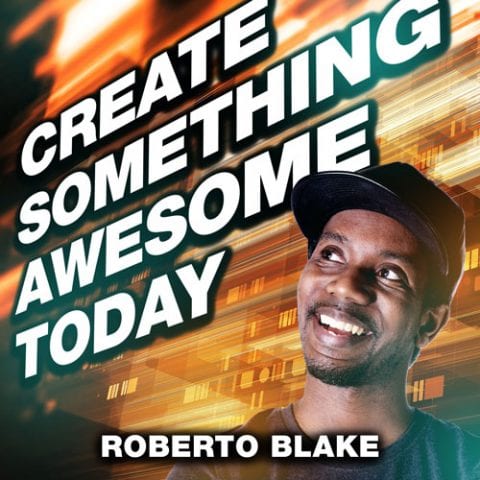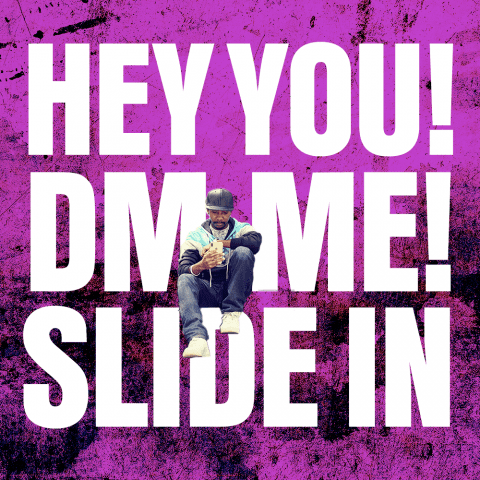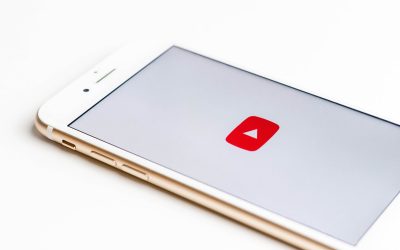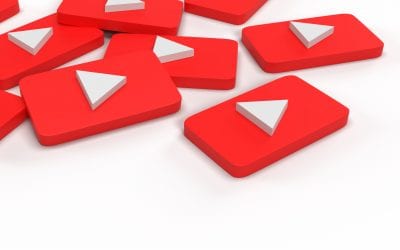This article is not in defense of YouTube as a company or trying to pretend they don’t have glaring issues in their systems, policies, and communication with creators.
That being said, many content creators have an over-emotional idea of what they think a FREE platform owes them.
This is about the concept of entitlement and the simple fact that YouTube owes you NOTHING.

When I make comments like this, people very quickly say, “Roberto, if YouTube were screwing you and demonetized every video of yours, you would be on our side and complain too”.
A story that often many people don’t know about because I only brought it up a few times, to help other people understand the importance of diversifying their revenue… is that I lost over $1500/month of income by being removed from the Amazon Affiliate Program, even though I was grossing Amazon a minimum of $500,000/year in product sales.
I also through being a part of an MCN (Multi-channel-network) that I signed with when I was a smaller channel, went over 2 months without being paid for Adsense revenue. a Delay on over $4000 of cash flow.
The reason that most people don’t know those stories is that I didn’t harass CEO of Amazon Jeff Bezos on Twitter every day until I was let back into the Amazon Associates program. If you scroll through the Twitter Replies at YouTube CEO Susan Wojcicki, every single day she gets 100s of hateful Tweets from content creators.
Even on a memorial post to a content creator who passed away, you will find comments and replies of creators making demands for her to step down as CEO, or viciously attacking her for the issues they experience on the platform. Or asking when they will be allowed into the YouTube Partner Program, having met the requirements.
Let me remind you this is how people are behaving who are using a FREE video hosting platform, that allows them to upload UNLIMITED VIDEOS at no cost, host them, it also distributes them and finds them an audience, provides them an advanced dashboard for data, a free video editor, provides FREE UNLIMITED Live Video Streaming, and before I forget, on top of this, the website allows them to be paid on top of it.
If I had told anyone 15 years ago that a website was going to offer unlimited video hosting for free, and also pay people for it, they would have laughed in my face and asked what the scam was.
It’s not to say there are no legitimate grievances for creators to have regarding the YouTube platform. The company could be much more clear in its communication and it often has a cultural disconnect from creators.
I myself as a content creator have my frustrations with the overall stability of the platform and the lack of support for its live-streaming tools and functionality is very outdated.
The issue is one of entitlement among some creators who are insistent that YouTube should answer to their demands, accept their culture and essentially allow them to create with no boundaries or consequences, and also financially incentivize that creation.
In my opinion that is the height of entitlement and arrogance.
YouTube as a company shouldn’t and can’t put creators first. YouTube is in service to the 2 Billion Monthly logged-in viewers, as well as the casual viewer who hasn’t bought into the YouTube culture.
If we wanted to be generous we could make the argument that the core YouTube community represents the 100M Subscribers of its largest homegrown content creator PewdiePie (Felix Kjellberg).
The core YouTube community even with those generous numbers would still be outnumbered more than 20:1 by the average consumer, the YouTube viewers who are not invested in the culture of the platform but use it as one of their options for consuming content and entertainment.
A company doesn’t survive, thrive and grow by serving the vocal minority, even content creators often leave behind their core community to grow and reach a broader audience so they can earn a living or invest in their content. Yet, YouTube is criticized for having exactly those same priorities.
Creators who have tried to leave YouTube for greener pastures have more often than not found they could not earn nearly as much revenue nor were they able to move over the majority of their audience and keep them actively engaged.
While Creators insist that if the most popular creators left YouTube in a mass exodus the platform would fail, there is no real evidence to support this unlikely scenario.
For one thing, the primary way that majority of YouTube content creators earn their living is a combination of YouTube Adsense revenue for views on their videos that run advertisings (55/45 revenue share with the Creator earning 55% of all sold advertising against their content), and sponsorships and brand deals where a brand collaborates with the creator on content in exchange for an agreed-upon fee.
These 2 revenue models are based on access to an audience, and the convenience that YouTube provides, the growth they are seeing in new users, and the resources available make YouTube the best game in town. Additionally, they are the platform with the most generous revenue sharing, and they also have at their disposal the single largest digital advertising network and the world’s second-largest search engine, their parent company owns the first.
There is no platform that can directly compete with YouTube and every platform competitor that has directly gone to war with YouTube has failed miserably despite overtures to court creators with upfront money, or even dangling the carrot of a more pro-free-speech platform. Adoption from the Creator Community and more importantly the average consumer to view the content has not worked for any of these would-be competitors.
What everyone fails to realize is that the viewer and the advertisers hold all the leverage and for better or worst YouTube has them.
Creators come to YouTube because that is where viewers are. And as much as homegrown creators would like to say otherwise, the data suggest they are not the largest source of traffic for the average consumer.
From its inception, music and music videos have dominated the platform. Recently YouTube also introduced movies and television shows from legacy brands and franchises that can be viewed for free.
Ironically the most viewed content on YouTube at its birth was free-booted content in the form of 90s televisions shows and movies being uploaded in violation of copyright laws, leading to a lawsuit from Viacom and other media holders that threatened to destroy YouTube in its infancy. The litigation around this issue lasted for over 7 years.
This is the issue with user-generated content, without policing the behavior of its users the platform became liable and open to a 1 Billion Dollar Lawsuit. Creators did not bare the legal cost, and they certainly do not absorb the hosting and infrastructure cost associated with hosting and distributing their content.
YouTube is not only a FREE platform, but most content creators monetized or not, do not carry their weight in the cost of their content. It’s not even close in most cases. The largest creators on the platform essentially subsidize the rest of us having access to the platform altogether.
Personally, if YouTube offered me what it currently does right this moment, but insisted that I pay $60/month for access to their platform or I could have a version where I can only upload once a week for free. I would not only happily pay the $60 month, but I’d also ask them what I would get if I were willing to pay $100/month…
That is how valuable what they offer actually is to me (personally).
I completely understand this is not the position of every single content creator and me more than most, value the access that free platforms and information have allowed for. All of my success is directly based on the accessibility of free information and platforms in the early days of the internet 20 years ago.
I even understand if someone wants to make the argument I am in a privileged position. That’s fair. But so is every other content creator to some extent if we are being honest.
You have the ability to reach a nearly unlimited audience, and earn an income around content with no barriers to entry. You may not be able to always do it the exact vision you had in your head, or you may have to learn a 5% filter or 15% filter, or some level of self-censorship, but that is a privileged position given that you would do far more self-censorship to earn a living in any other situation available to you.
Frankly, there is no opportunity to earn a living that provides the latitude and freedoms given to online content creators and influencers.
And for nearly a decade that culture has permeated in a vacuum until the platform became more mainstream and attracted a new generation of viewers and creators.
One of the consequences of attention is scrutiny and over the years the media, the advertisers, and the government have looked harder at YouTube and it’s content creators and the culture of the internet as a whole, and while it’s not something the fully understand they do understand now and accept that there is a lot of money involved.
Once forces outside the community and culture creep in, things inevitably change. And so much like after the Viacom lawsuit, YouTube has been forced to change and comply with the larger world it lives within, and not be an isolated and separate world unto itself, the world that only exist in the minds of the creators and their core community, a place where they feel they should be allowed to play by their own rules.
The reality, or rather, economic reality, has caught up with the platform and its creators. YouTube as they knew it, is over.
I am completely sympathetic to creators who are struggling and those who feel they have no place where their voice is heard and respected.
For many YouTube is the only place they have ever found acceptance, community and been valued for who they truly are.
YouTube can’t provide that and provide the opportunities for content creators to earn revenue from advertisers subsidizing the platform, or a government that has a growing interest in regulating social media platforms and big tech, at least not for all creators.
You will find the majority of the creators on the platform who are partnered with YouTube Adsense, have not been affected by the issue of demonetization. And while many creators are certainly frustrated when a video doesn’t perform the way they would like, most take it in stride and take responsibility for their content and try to make it work.
Most creators realize that YouTube provided them opportunities they could have never gotten on their own, and are grateful for the opportunity just to play the game even if they lose more than win.
People will say my view on this is privileged. I probably with regard to just the income the channel revenue generates in Adsense, do YouTube at just above break-even and because I do long-form content with no broad appeal and pay upfront for closed-captioning, I do nearly every one of my videos initially at a loss.
The ones who are privileged are the ones complaining every day and insisting that a FREE platform that offers to pay them for their content, and provides them nearly unlimited resources they could never earn on their own, relationships with advertisers they could never get on their own, access to an audience they could never get on their own, still owes them more than they are currently getting.
In fact, it’s such a privileged position, that if those creators abandon the platform, there are literally millions of new faces and voices lining up to take their place. Everyone want’s to be a creator or influencer.






0 Comments